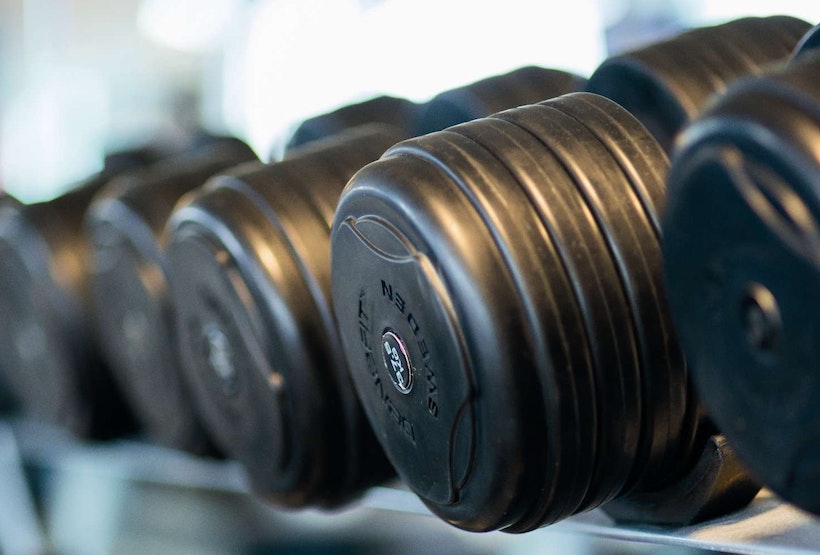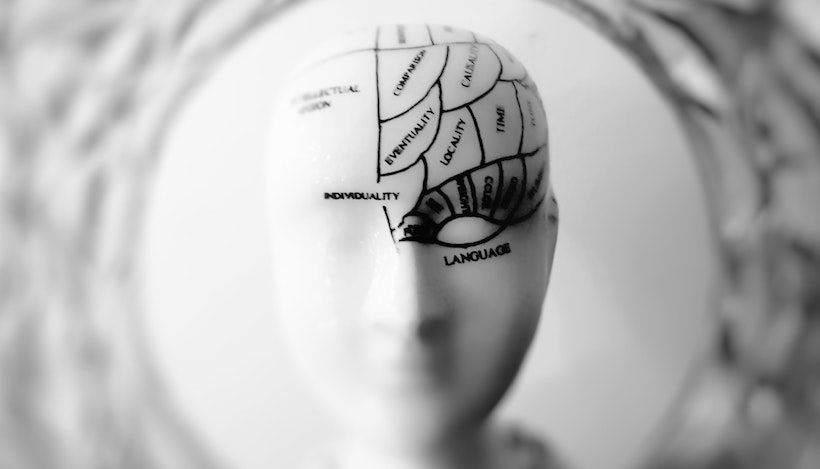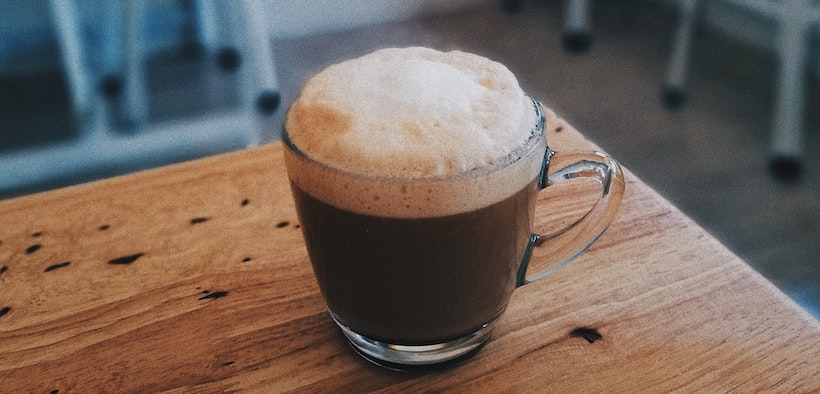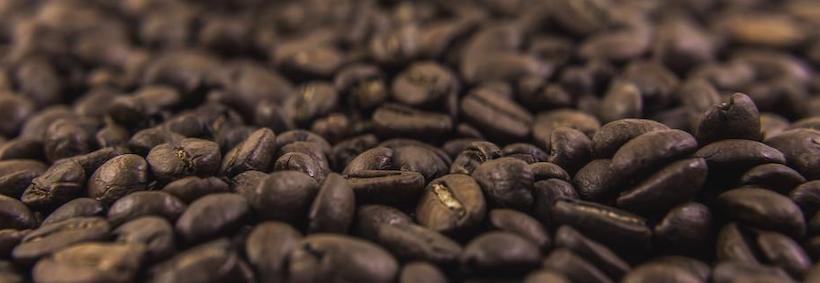As a daily coffee drinker – okay, thrice-daily – I can't get enough of that familiar boost I get from a cup. Yet coffee and its principal active ingredient caffeine are so controversial it's natural to wonder just how healthy they are.
Naturally, I decided to do a deep dive into my daily caffeine habit.
Let's take a look at all the ways – positively and negatively – caffeine and coffee affect your health.
Grab a cup – this will be a stimulating one.

Coffee: how on earth could it possibly be healthy for you?
Just like with wine, many of the benefits of caffeine come from the body's dose-dependent reaction to the chemical. Caffeine is a natural plant defense and insecticide found in various nuts, seeds, and leaves – like today's hero, the venerable coffee bean.
Like with wine, many of the health benefits of coffee come in the hormetic zone of the drug. Hormesis refers to a dose-dependent response to a chemical or stressor, which causes a positive biological effect. (For example, consider lifting weights.)
Caffeine has some direct effects on the body too. It blocks the effects of the neurotransmitter adenosine, which is behind much of the increased alertness. It also has a stimulant impact on your central nervous system, constricts blood vessels, and is a mild diuretic.
It all adds up: caffeine is, by most accounts, the most popular drug in the world.
The ingredient profile of coffee goes beyond simple caffeine. After all, pure caffeine is just a white powder...
However, for the sake of my research into the health effects, I'll be focusing on the basic ingredient profile. This includes caffeine, various antioxidants, monoamine oxidase inhibitors (MAOIs), and multiple minerals and vitamins.
This stands without question: coffee contains caffeine.
It's perhaps the number one ingredient many coffee users (myself included) look for when seeking a coffee fix. Caffeine is at its heart a stimulant – caffeine will increase your heart rate and blood pressure, and make you more alert and less tired.
But caffeine isn't the only biologically active ingredient in coffee...
Monoamine oxidases are enzymes with many biological effects, including many effects on neurotransmitters such as serotonin, melatonin, and epinephrine (adrenaline). Monoamine oxidase inhibitors (MAOIs) block or downregulate MAO effects in the body. Some MAOIs are very useful antidepressant or antianxiety drugs.
Very interestingly, caffeine also is a Monoamine oxidase inhibitor. Other substances in coffee – such as norharman and harman – are potent MAOIs, but present in smaller amounts.

Many of the health benefits coffee has to offer come from high antioxidant activity. Antioxidants are compounds that inhibit the oxidation process and counteract harmful substances in the body, such as free radicals. Two of the types and classes of antioxidants found in coffee are chlorogenic acid as well as other polyphenols.
In fact, studies show that coffee is one of the largest sources of antioxidants in the western diet, at a whopping 47% of total antioxidants.
Coffee also hosts many different vitamins and minerals, generally positively affect your health. The amount and type depends on the kind of coffee you're drinking and how it was brewed.
Many B-vitamins appear in coffee:
Some historical research suggests that coffee might even help in areas commonly supported by C-vitamins, as well.
As for minerals, magnesium is an infamous ingredient of coffee. While you can find various levels of it depending on your brew, you generally find it in more significant quantities in other food sources.
Potassium is another mineral found in your cup. In fact, an average coffee drinker consumes 3% of their daily value of potassium with coffee.
There is also sodium in coffee, but it's not a significant source. That depends, of course, on how you take it – if you buy a salted caramel drink, you've bypassed the lower sodium!

Humans and coffee go way back. As we've evolved, so too has our relationship with coffee – there are many ways to produce coffee from the bean.
Let's talk about some of the more common types of coffee.
This covers many of the main styles of coffee. There are others, of course: you can make a hot brew like cold brew (well, with hot water) or Turkish coffee or... and the list goes on.
Now we've talked about what's really in your cup and the styles you can drink. Let's get into the heart of it and talk about how coffee affects you.
In this list, I've compiled coffee research suggesting that – in moderation – coffee and caffeine have many beneficial effects on the human body.

Historically, coffee's relationship to heart health has been a bit of a controversial topic. Since it does cause acute anxiety and higher blood pressure, one corner of scientists argued it was a bane, while others argued that the hormetic effects made it a boon.
Well, you can rest easy – preliminary research presented for the American Heart Association suggest that coffee really can benefit your heart health.
Research indicates that coffee consumption can help decrease the incidence of strokes and heart failure. Some studies suggest the effect is minimal, but that might just come down to how often you drink the magical drink.
On the heart attack front, one study was conducted following patients after an acute myocardial infarction – a heart attack. It showed habitual consumption of coffee post heart attack can help reduce the risk of mortality or a second attack.
I'll take my chances – I bet coffee will eventually emerge as a clear cardioprotective drink.

Looking to lose a few pounds? Some of the keys to your weight loss might be at the bottom of a coffee cup.
Studies have shown that coffee can stimulate your metabolic rate. It is shown to affect both individuals with average weight and those who are obese. (But fat oxidation is more significant in people with average weight.)
Beyond weight loss, there is also research seeking a connection with coffee and maintaining successful weight loss. In the study, people that successfully managed their weight after a diet indicated they consumed more coffee than those who failed.

Over the years, much research has examined the connection with type II diabetes and coffee consumption – one study even followed up with participants for years. Good news: both caffeinated and decaffeinated coffee intake seem associated with a reduced risk of diabetes.
Evidence suggests that people who increase their daily coffee intake over four years lowered their risk of type II diabetes by 11%. Contrast that with people who cut their coffee intake by a cup over the same timeframe: they saw a 17% increase in their type II diabetes risk.
The connection might come down to insulin. Coffee appears to have a good association with a person's level of insulin sensitivity. Even decaffeinated coffee positively benefits beta-cell function.

This one is almost a freebie. Caffeine, as a stimulant, increases your focus and stamina in the gym. There is ample research, too, which shows a connection between coffee consumption and better performance with resistance exercises. In the linked study, participants who drank more caffeine were able to lift a higher total amount of weight than their un-caffeinated compatriots.
Caffeine makes its way into all manner of weird pre-workout concoctions – and for excellent reasons. But did you know caffeine also appears to help with your post-exercise recovery as well?
There are indications that coffee can have a positive impact on your blood circulation. During a workout, an increase in blood flow will provide more oxygen to your muscles. And after you put down the iron, that same blood flow helps deliver needed nutrients to depleted muscles.

Are you looking for a memory boost? Coffee is a great choice: there's evidence that shows enhanced memory performance even over a mere 24 hours.
Further research is focused on how caffeine can improve long-term memory function. We shouldn't get ahead of ourselves, but it's possible that caffeine also increases your memory and reduces cognitive decline over the long term.
Until that research is complete, you can rest easy knowing that your short-term memory can see a boost. If the longer-term memory benefit comes to fruition, maybe you'll remember to come back here and leave a comment!

Memory isn't the only thing you'll see an improvement in with regular coffee consumption. Studies addressed how coffee can impact certain other types of cognitive performances.
For instance, specific doses of caffeine can help improve accuracy and cognitive speed, while decreasing the likes of depression, hostility, and fatigue.
Much of the research mentioned above examined military personnel – but even if you're just drinking it before your afternoon meeting, you'll benefit from the mental boost.

There are a couple of different ways that coffee can have a positive impact on your skin health. For starters, it seems to fight off photoaging and decrease the number of pigmented spots for caffeine drinkers. This appears to be due to the polyphenols found in tea and coffee.
Coffee also seems beneficial against skin cancer. Some evidence hints coffee may provide moderate protection against the development of basal cell cancer (BCC), usually denoted basal cell carcinoma. This is one of the most common forms of skin cancer.
There may even be a protective effect from coffee against the development of melanoma, generally the most severe form of skin cancer. This protection appears only to be bestowed on regular coffee drinkers, though.
Might doctors soon suggest we drink coffee before heading out in the sun?

Another surprising benefit coffee consumption has? It seems to help your lungs.
You may have notice coffee or tea improves a persistent cough if taken alongside honey. Coffee also seems to reduce the effects of chronic respiratory issues.
An interesting factor about coffee consumption is that it can also play a role in those of you with asthma. A small amount of caffeine is known to improve your lung function over a few hours – it serves as a bronchodilator (it widens the airways).
Of course, you should keep these effects in mind before a lung exam or respiratory examination. Coffee is potent enough to cause false-positive results for some tests.

Gout is a painful condition that arises from "hyperuricemia," which is when your blood contains too much uric acid. Symptoms are characterized as flare-ups with weeks or months of remission periods – in gout, uric acid crystals collect (painfully) in your joints, and especially in your ankles, toes, and fingers.
Coffee consumption seems to be reasonably protective against gout. Moderate coffee intake helps lower your body's serum uric acid.
Research also indicated men and women may require a different amount of coffee to see this benefit. While both genders benefitted, women needed substantially more coffee to see improvements (4-6 cups a day).

With all the positive mental effects of coffee, it's no wonder there has been work figuring out if (and how) coffee plays a role in depression.
Researchers at the Harvard School of Public Health indicated that coffee improved the symptoms of depression for some women in one study. They discovered that the risk of depression lowered by 20% in women that consumed more caffeine compared to the ones that drank little coffee (or none at all).

Usually, humans' most significant exposure to mercury comes from the consumption of fish. From many types of fish, humans consume substantial amounts of the methylmercury (MeHg) form of mercury.
Raw fish alone contains large amounts of Hg, but different cooking methods can reduce bioavailability. For example, boiling and frying fish can cut down on the amount of Hg you'll ingest.
One non-invasive way to significantly reduce Hg bioavailability is with coffee. Black coffee, in particular, is known to reduce bioaccessibility of mercury by upwards of 50-60%.
This might save you from building up too much Hg in your body and seeing the adverse effects – effects that include emotional disturbances, digestive issues, tremors, and negative changes to your immune system, among others.
It's enough to make me want to drink coffee with my sushi.

It seems as though coffee has a positive effect on the body from head to toe – and studies concerning coffee and the liver further add to that impression. The majority of studies indicate that the magical beverage can also be leveraged in the fight against liver fibrosis.
Many chronic liver conditions might lead to liver fibrosis. Still, thankfully, some studies show coffee drinkers see a lowered risk of the development of nonalcoholic fatty liver disease (NAFLD). For individuals who already have NAFLD, coffee can, in turn, reduce the chance of it turning into liver fibrosis.
When it comes to alcohol-related liver conditions, coffee also can help protect against liver disease there too. Coffee can reduce liver enzyme gamma-glutamyl transferase (GGT) levels, something that individuals who drink heavily are exposed to in excessive quantities.

As you know from the sections on memory and cognitive performance, coffee is useful for short-term stimulation of the central nervous system. Research has also looked at how coffee affects us chronically. Good news: coffee can help fight off dementia and Alzheimer's disease.
Although there are some inconsistencies concerning the research, most studies on this front suggest there are some favorable improvements against cognitive decline that come from the drink.
Much of this probably interconnects with some of the other effects I've enumerated. By increasing insulin sensitivity, for example, coffee can reduce the chance of type II diabetes, a risk factor that can often lead to the development of Alzheimer's.
Some studies even discovered that a moderate amount of coffee every day over an extended time can help reduce the risk of dementia by about 27%.
Raise a mug to your long term brain health.

For years now, we've seen study after study attempting to find a connection between coffee and your risk of developing several different kinds of cancer. It does look like we found one: coffee looks to have a chance of reducing the total incidence of cancer.
Furthermore, as coffee contains several antioxidants, those antioxidants likely protect against different cancers on their own. I previously discussed how coffee can help with liver diseases (including cancer), but research also showed coffee can lower the risk of prostate cancer and endometrial cancer as well.

Yet another path of research on coffee and the brain focuses on how caffeine might affect Parkinson's disease. Even though more research is certainly needed on the specific effects of coffee on the disease, there are a lot of current studies that support the theory that caffeine protects against Parkinson's.
In one study of Japanese-American men, those who consumed various levels of coffee per day were compared to non-coffee drinkers.
The coffee-avoiders saw an annual incident rate of 10.4 cases of Parkinson's per 10,000 person-years. Coffee drinkers (minimum of around 28 oz. of coffee daily) had a significantly lower incident rate at 1.9 cases per 10,000 person-years. The effect was seen in never, past, and current smokers as well.
Even when looking at the risk factors that contribute to Parkinson's, coffee was shown to have a significant negative association with Parkinson's.
The jury's still out, but it does look like coffee can help here, as well.

There has also been considerable analysis of how coffee consumption relates to the risk of stroke. Once again, good news: in one study, coffee-drinkers had an 11% reduced risk of stroke vs. non-drinkers.
(More precisely, women saw a reduction in risk by 17%, and there was minimal statistical difference with men.)
As a whole, studies show there is a strong negative relationship between stroke risk and coffee consumption. Heavy consumption could capture that 17% reduction, while light coffee drinkers might only see a 10% reduction.
With all that said, more research is needed to get a more concrete conclusion on stokes and coffee and figure out any gendered differences. Once again, insulin sensitivity might be critical here – since coffee improves sensitivity, it might also be protecting against stroke risk at the same time.

Worldwide, coffee is the most popular beverage after water. Humans consume around a whopping 1.6 billion cups daily. Much of this seems to be due to how useful caffeine is at keeping us alert and awake.
For centuries, humans have known that caffeine is a central nervous system stimulant. Caffeine suppresses the effects of adenosine, a natural occurrence in the body that can affect the behavior of sleep. In other words, some of how it can work as a central nervous system depressant is by inhibiting processes that contribute to sleepiness.
The stimulant effect and the productivity that ensues is probably the most famous benefit of caffeine. There are even credible theories that coffee – and caffeine more broadly – was [artially responsible for the Enlightenment:
In spite of all the proven benefits, there are still some risks concerning coffee consumption.
Yes, caffeine is technically fatal to humans in a high enough dosage. There is nearly zero chance you'd consume enough from espresso or your dripped cups, however. Most caffeine-linked deaths worldwide are linked to caffeine powder or diet pills.
Generally, adverse health effects of caffeine come down to two factors:
Concerning coffee and reflux, research shows that coffee might have negative effects. Coffee stimulates gastric acid and slows gastric emptying, which may – although it is unproven – have an impact on some people. Generally, doctors recommend GERD sufferers are cautious with coffee, but we'll see how this research plays out.
One place that isn't as controversial is that coffee tends to be acidic. Instead of causing problems after you've consumed it, it's possible coffee causes issues on the way down.
This is undoubtedly an individual thing. If you find that coffee aggravates your reflux, some brands and methods of coffee have lower acidity than others. Cold brew coffee is one example – it tends to have much lower acidity than most hot brewed coffee varieties. Additionally, you might avoid coffee on an empty stomach – for some people, this is a trigger.

One place where we do have a lot of research is around caffeine and pregnancy. And the results are consistently negative.
Heavy caffeine consumption in pregnant women is associated with:
You need to talk to your doctor about cutting your caffeine consumption while pregnant, of course. But – in general – coffee increases the risk of a multitude of health issues in pregnant women and among unborn children. The American Pregnancy Association even suggests limiting coffee consumption when breastfeeding.
Some research has found a possible connection between heavy coffee consumption and bone fractures. Most of this concluded –albeit not conclusively – that women might see a more significant increase in the risk of fractures than men.
This may, in fact, be related to the long-term consumption of coffee. Some studies claim that caffeine may interfere with calcium uptake and contribute to bone loss by increasing the amount of urinary calcium excretion.
Again, talk to your doctor, especially if you have osteoporosis or are otherwise at risk of brittle bones.
With great focus and concentration also sometimes comes a dark side – increased anxiety. Caffeine, as a stimulant, is linked to several psychological disorders, including anxiety. However, some of that link might be confounded – perhaps anxious folks are more likely to drink coffee than others, for example.
Reports do indicate that cutting caffeine consumption is useful if you suffer from these illnesses, however.
For example, some studies found that if you are prone to panic attacks, you might see an improvement if you significantly reduce your coffee intake. Eliminating or greatly reducing your coffee intake is palliative, as the caffeine can exaggerate your symptoms.

With increased blood flow and constricting blood vessels, you're probably wondering if caffeine has any chronic effects on your blood pressure. Some research concludes there may indeed be a link – as few as 1-3 cups of coffee daily might increase a person's risk of developing hypertension.
It's well known that coffee has a way of raising your blood pressure shortly after you initially consume coffee. All in all, this can last for around three hours. However, whether caffeine intake causes longer-term hypertension is still a point of contention.
Note here that people do tend to metabolize caffeine differently and at varying rates. You may have a lower or higher response to caffeine than others – if you're new to drinking coffee, scale your intake only gently to see how it affects you.
Caffeine is a natural stimulant, so of course, it can affect your sleep as well if you aren't careful. Coffee blocks the effects of adenosine, which helps promote sleep. If you need to sleep, that obviously will have a significantly negative impact on your sleep cycle.
Even drinking coffee and falling asleep soon after can damage your sleep health as it cuts down on how long you sleep (sleep duration) and increases how long it takes to fall asleep (sleep latency).
That's why it's important to drink coffee at the right time. Somewhere between 10AM and 12PM is ideal for those of you with a regular sleep cycle – you should avoid caffeine anywhere between 6-8 hours before bed.
Paradoxically, if you can combine coffee drinking with a nap, you can combine the benefits. Consider the so-called coffee nap or nappuccino if you really need a boost during a dragging afternoon.
A significant adverse effect you might experience as a coffee drinker is caffeine withdrawal. What it takes to experience (painful, trust me) withdrawal is substantially reducing your consumption after getting your body used to a higher level of intake.
Remember, coffee has all sorts of substances beyond caffeine. Your body, in a sense, is used to a certain level of consumption. If you alter the pattern, it won't immediately upregulate and downregulate its systems.
The painful result of abruptly reducing caffeine: digestive issues, headaches, vision disturbances, and cognitive consequences. And a heavy dose of irritability.

So, with everything on the table – is coffee actually good for you?
Yes, in my opinion, the juice is worth the squeeze (or – the bean is worth the grind?).
There are negative effects, but the positive effects are nearly magical. It improves cognition, probably helps with heart health, protects your skin, and confers a multitude of other benefits on the humble caffeine drinker.
I'll temper my excitement some, though. Your body does get used to caffeine, so it's worth mildly changing your habits regularly, only to "use it when you need it," if you will. And of course: if you are pregnant, planning on pregnancy, or breastfeeding, have a serious talk with your doctor around your consumption.
For the rest of us? I'm a believer in the cup.
There are certainly limits – as I mentioned, caffeine is theoretically fatal to humans. This only comes at massive doses, though: it's virtually impossible to overconsume caffeine with coffee (but don't attempt it).
There are more practical limits, though. The Mayo Clinic pegs about 400mg of caffeine – around 4 cups of coffee – as a reasonable upper limit for most. If you are in the previous categories, or if you have issues with the acid, or perhaps with anxiety or another side effect, your results may vary.
If you aren't as fond as coffee as I am, then there's no need to worry. You can still get some of the health effects of coffee without drinking it by trying out some alternatives.
This includes decaf coffee instead of caffeinated coffee. If it's the coffee you don't like, but you'd like to keep the caffeine, you can even try certain teas. Green tea is an excellent choice – it's a drink containing less caffeine but promising plenty of health benefits.

It's no surprise, I'm a massive fan of coffee. I drink it all the time, morning, noon, and (it pains me to admit) night.
Luckily for me – and billions of more people around the world – coffee seems to have many fantastic effects on human health and performance.
So unless you find yourself in one of the categories where you need to avoid the cup, drink up. That cup will do you good.